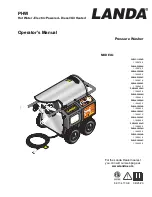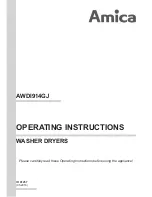
Detergent Recommendation
3 OPERATION
Agglomerating or ropy detergent or additive can be diluted in some
water before pouring it into the detergent dispenser, to avoid its inlet
to get blocked and thus cause a water overflow.
• Please choose the suitable type of detergent to get a maximum of
washing performance and a minimum of water and energy
consumption.
• To achieve the best cleaning result a proper detergent dosing is
important.
• Use a reduced detergent amount if the drum is not filled completely.
• Always adjust the amount of detergent to the water hardness, if your
tap water is soft, use less detergent.
• Dose according to how dirty your laundry is, less dirty clothes require
less detergent.
• Highly concentrated (compact detergent) requires particularly
accurate dosing.
Following symptoms are a sign of detergent overdosing:
- heavy foam formation
- poor washing and rinsing result
Following symptoms are a sign of detergent underdosing:
- laundry turns grey
- built-up of limescale deposits on the drum, the heating element
and/or the laundry
•
Heavy-duty detergent
with bleaching agents
and optical brighteners
Colour detergent without
bleaching agent and
optical brighteners
Color or mild
detergent without
optical brighteners
Mild washing detergent
Special wool detergent
Cotton,ECO 40-60,
Mix,Bulky
Cotton, ECO40-60,
Mix, Bulky, 20
°C
20
Synthetic
°C,
Synthetic
Wool
20/30
40/60
/
20 30
/
20 30
/
Cold/20
/30/40
Cold/20/
30/40
21
Washing
temp.
Wash cycles
Recommended washing
detergent
Type of laundry
and textile
White laundry made
from boil-proof
cotton or linen
Coloured laundry
made from cotton
or linen
Coloured laundry
made from easy
care fibres or
synthetic materials
Delicate textiles,
silk, viscose
Wool
Note!
















































